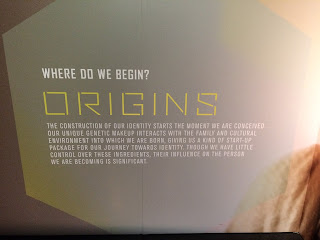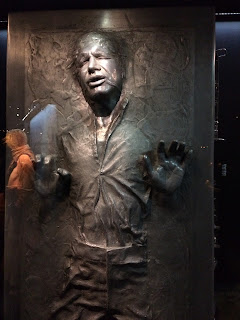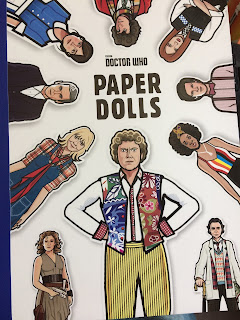On Saturday, I was a guest at the
Fairford Festival, the literature bit organised by my friend (and sometime mentor)
Paul Cornell.
The day began with a brilliant talk by
Sarah McIntyre who got us drawing sea monkeys and singing the sea monkey song. Then Sarah took part in the parade through town, a fire engine leading assorted Daleks, drummers and boy scouts through the glorious sunshine.
Emma Newman, whose
Planetfall I found enthralling, then discussed ways to knuckle down to writing, overcoming fears and distractions and the need to tell people what you're working on rather than doing the work. I really like the idea that the more you write and send out and get rejected or critiqued, the more you build up armour.
Then Marek Kukula and I did our spiel on the
Scientific Secrets of Doctor Who - and Sarah McIntyre sketched us looking especially clever.
 |
| Portrait by Sarah McIntyre |
After that we went hunting for food and enjoyed a bit of sun, and got chatting to various people, including the team at
Pea Green Boat Books and also
Ian Millsted, who has written a Black Archive book on the 1982 Doctor Who story Black Orchid. But that ambling about and nattering meant I sadly missed
Shagufta K before returning to catch the end of
Martyn Waites' talk. By then I was a bundle of nerves in preparation for interviewing
Doctor Who head writer (and my boss), Steven Moffat, to a packed and eager audience.
There was just time to wave goodbye before Marek and I had to race for our train back to London, only to find it was running late anyway.
Which meant we were on the Tube heading for London Bridge when the announcement came that the train would not be stopping there. With no other information, not sure what was going on, or how much of London was affected, I then had a convoluted and very long journey home via several modes of transport. There were a lot of frightened people on the trains and buses, and also the resignation of south Londoners used to transport being all acock. But the most noticeable thing was the constant, "Hi, are you stuck, can I help?"





























